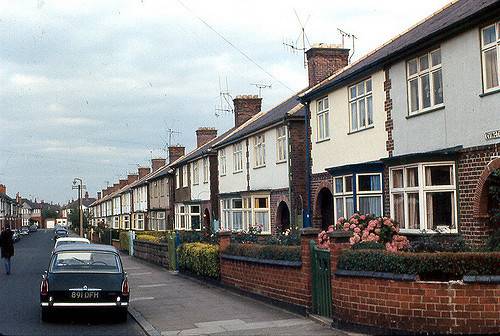
Investing in bricks and mortar is a wise decision that pays dividends over the long term. When you choose to put your money into a residential property investment you not only benefit from a place to call home but also cash in on the very real increases in your property value. For example, elderly couples who bought their own homes for just a few thousand pounds back in the 1950’s are now sitting on goldmines that could be worth in excess of half a million pounds.
Property value increases outstrip inflation
The UK housing market has increased in value far in excess of inflation over the past 50 years. The average price paid for properties in 1969 was around £4,312, this increased to £10,388 in 1975, and £22,676 in 1980. When house prices are adjusted to include rates of inflation, average prices paid in 1975 would have amounted to £83,126 (at 2014 price levels), while the actual prices paid for average homes in 2014 amounted to around £188,810. This stunning price increase is reflective of the importance of investing in a residential property at the earliest possible opportunity.
2030 forecast for average house prices
By the year 2030, the average price for a house is forecast to reach £457,433 according to research published in the Daily Mail. These projections were provided by online estate agents eMoov and highlight the following:
Claim up to $26,000 per W2 Employee
- Billions of dollars in funding available
- Funds are available to U.S. Businesses NOW
- This is not a loan. These tax credits do not need to be repaid
- prices for properties in London are likely to average around £1m by the year 2030
- average property prices in Wales are likely to be around £307,712
- Scottish average house prices are likely to reach £297,222
- it’s likely that the most expensive place to buy a home will remain Kensington and Chelsea, where average values could climb to £3.4m, from the current average of around £1.9m
- the cheapest properties in London will probably be in Barking and Dagenham, with averages around £450,000
This research from eMoov highlights just how important it could be for first-time property buyers to get onto the property ladder at the earliest opportunity. Separate research has also indicated that average house prices have increased more than five times quicker than average weekly income in the past five years.
Indications from the Resolution Foundation are that property prices have risen by 36% since 2011, while the average for weekly earnings has only increased by 7% for the same period.
Lindsay Judge, a Policy Analyst at Resolution Foundation, said: “Runaway house prices have had a clear feed through to living standards in recent years. Most obviously it has priced people out of home-ownership, pushing significant numbers into the private rental market”.
eMoov spokesman, Russell Quirk, commented that these figures highlight “just how dangerous this current artificial inflation of the market could be in the long run, it’s not just London that will become beyond the reach of the average UK homebuyer, the issue will spread the length and breadth of England, Scotland and Wales”.
Outside the London area, other counties in England that are likely to see average house prices higher than £500,000 include East and West Sussex, Dorset, Kent, Berkshire, Essex, Surrey, Hertfordshire, Oxfordshire, Cambridgeshire and Rutland.
The only locations forecast to have average house prices less than £280,000 by 2030 are likely to include Merseyside with prices around £275,074, the East Riding of Yorkshire with prices around £277,411 and Durham with prices around £279,985.
Although these forecasts make gloomy reading for anybody struggling to get onto the property ladder, they do highlight just how effective residential property investment is likely to remain for the foreseeable future. Prospective property buyers would be well advised to make the move to purchase their new home at the earliest possible opportunity.



